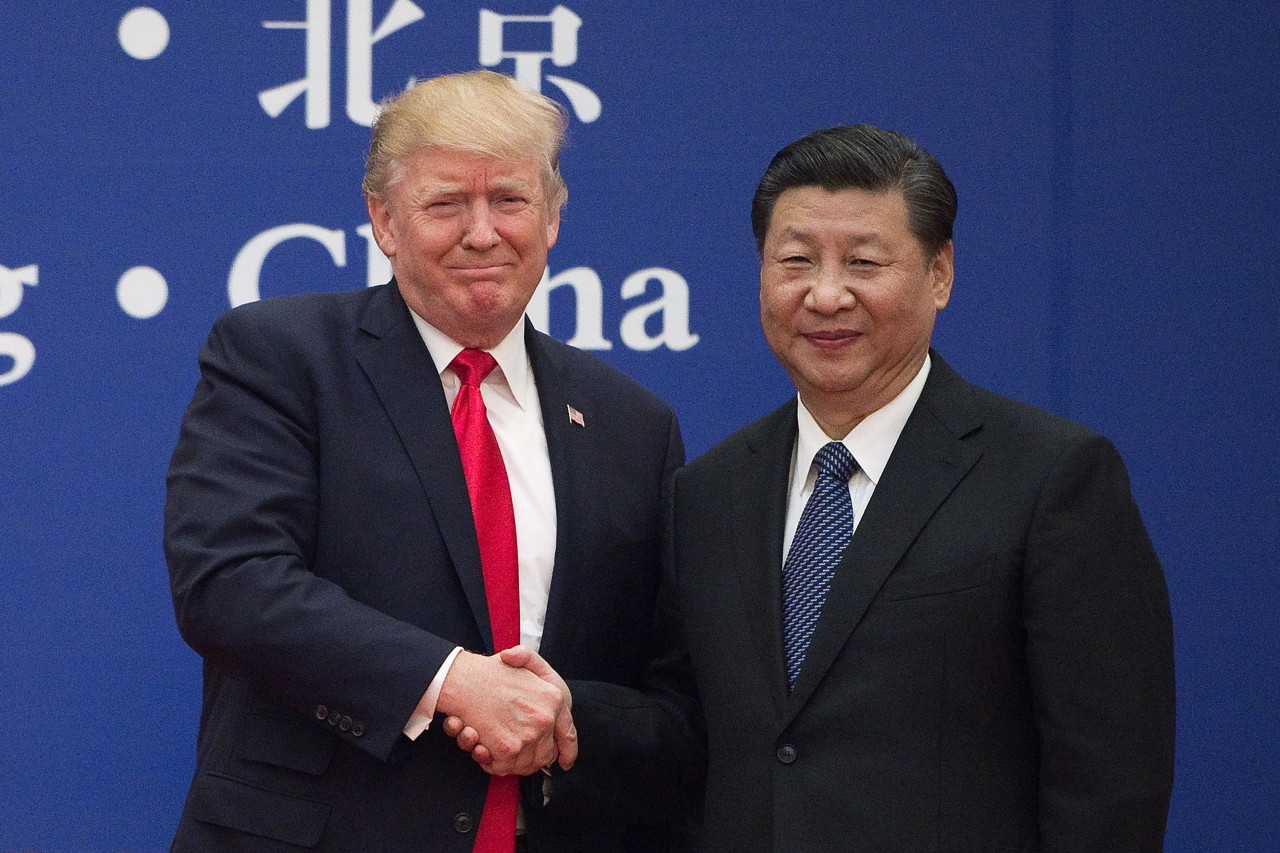Popular Reads
Top Results
Can't find what you're looking for?
View all search resultsPopular Reads
Top Results
Can't find what you're looking for?
View all search resultsTrump vs. Xi: A global leadership contest
The US-China trade war is not only a geopolitical confrontation but also a powerful contest of leadership.
Change text size
Gift Premium Articles
to Anyone
A
s the United States-China trade war escalates, the world finds itself watching not only a geopolitical confrontation but also a powerful contest of leadership. This is a duel between two vastly different figures, Donald Trump and Xi Jinping, each representing not only himself, but also two contrasting models of governance: The populist energy of Western democracy versus the disciplined order of a one-party state.
Trump, a businessman-turned-president, exemplifies a political outsider who stormed into the White House through a populist campaign that promised to "Make America Great Again". His unconventional ascent to power, lacking prior public office experience, was fueled by mass media exposure, economic nationalism and cultural conservatism.
Trump’s leadership style is brash, media-savvy and often disruptive. His supporters see this as a strength, a willingness to challenge the status quo and make quick, bold decisions. His critics, however, argue that this very impulsiveness undermines both domestic unity and international alliances.
Xi, by contrast, is the product of a long and calculated political journey. He rose through the ranks of the Chinese Communist Party, serving at various levels of government in remote provinces before reaching the highest echelons of power.
His style of leadership is deliberate, structured and deeply embedded in China’s authoritarian political framework. Since assuming power in 2012, Xi has consolidated authority by eliminating term limits and centralizing control across party and state institutions. Unlike Trump’s reliance on charisma and controversy, Xi wields power through institutional dominance and strategic foresight.
Xi’s leadership achievements are substantial. Through his anticorruption campaign, he has not only purged rivals but also instilled discipline within the party.
On the international stage, his global infrastructure strategy, the Belt and Road Initiative (BRI), has extended China's influence across Asia, Africa and Europe.
Domestically, the “Made in China 2025” initiative reflects his ambition to transform China into a global technology leader, especially in strategic sectors like artificial intelligence, telecommunications and defense. The modernization of China’s military under his command further signals an integrated vision of national strength that combines economic, political and military dimensions.
In the current phase of the trade war, Trump has once again raised tariffs on Chinese imports, some reaching 145 percent, including restrictions justified by national security concerns, such as those related to fentanyl. These moves align with his campaign rhetoric for the 2024 election, aimed at energizing his political base.
Xi has responded assertively, raising tariffs on US products to 125 percent, and doubling down on efforts to build domestic resilience through regional partnerships, particularly with ASEAN, and the development of strategic industries.
The global community is watching this clash with growing anxiety. Financial markets have become volatile, supply chains are strained and nations across the Global South, including Indonesia, are feeling the pinch of the big power rivalry.
In this geopolitical tug-of-war, Indonesia has attempted to maintain a neutral stance, cautiously exploring the role of a regional mediator while contending with its own internal governance challenges.
For Indonesia and ASEAN, both the US and China are strategic partners. But ASEAN's relationship with these two powers is complicated. It is a mix of wanting economic benefits, security cooperation and strategic autonomy.
Both Trump and Xi have their strengths. Trump is effective at seizing political momentum, speaking directly to disaffected voters, and using media to control the narrative. But his approach often lacks policy consistency and tends to isolate traditional allies.
Xi, on the other hand, has demonstrated remarkable endurance and coherence in pursuing long-term national objectives, albeit through a highly centralized system that risks suppressing dissent and reducing transparency.
Ultimately, this contest is about more than personality, it is about competing systems of governance and the values they project. Trump represents a form of democratic populism that thrives on spectacle, personal brand and reactive policymaking. Xi stands for a technocratic authoritarianism that prioritizes strategic patience, national planning and ideological conformity.
In today’s complex global order, marked by economic interdependence, technological rivalry and shifting alliances, effective leadership requires more than charisma or rigidity. It demands strategic vision, institutional coherence and the ability to maintain national stability while engaging constructively on the international stage.
On that score, Xi appears to have the upper hand. His methodical approach to governance, backed by long experience and centralized authority, has enabled China to sustain economic growth, expand its global footprint and assert itself as a superpower contender.
Trump may command headlines, but Xi commands continuity. And in a world that increasingly values stability amid chaos that difference matters.
The outcome of this leadership contest is still unfolding. But as we watch this grand duel play out, one thing becomes increasingly clear: The future of global leadership may well hinge not on who speaks loudest, but on who plans furthest.
***
The writer is a former Air Force chief of staff and chairman and founder of the Indonesia Center for Air Power Studies.











